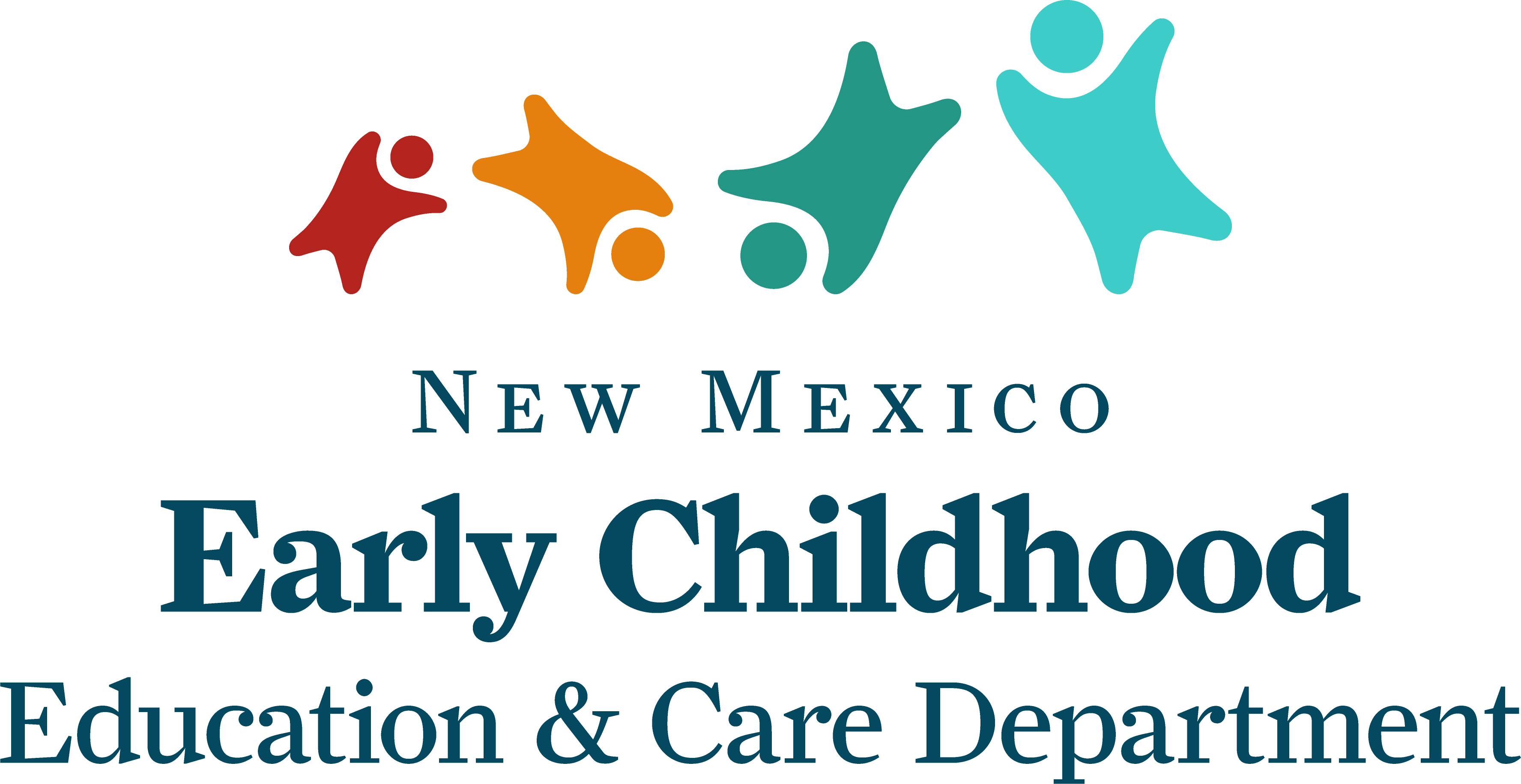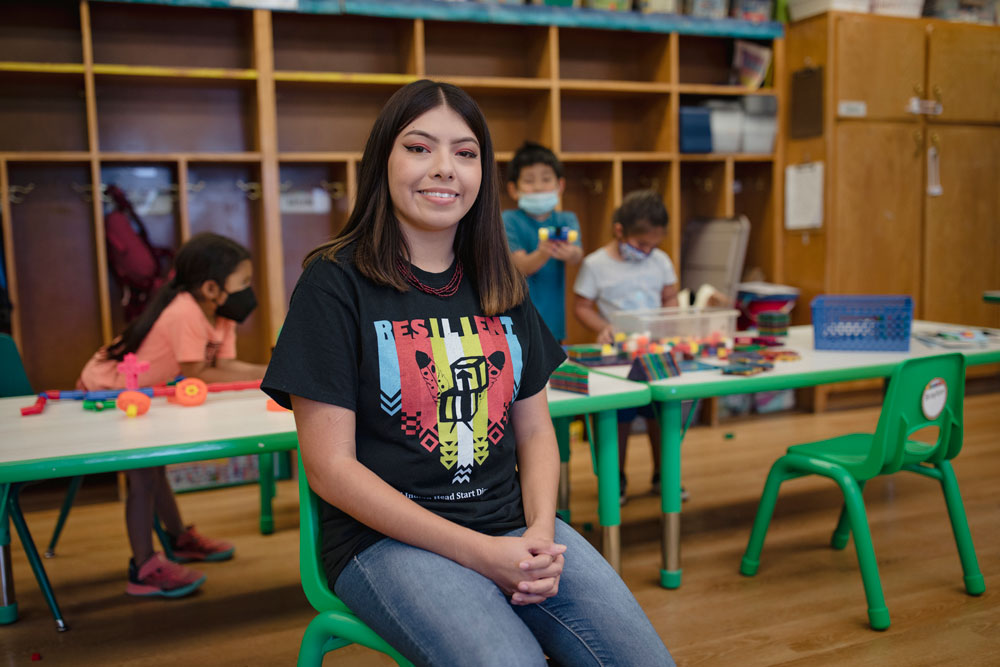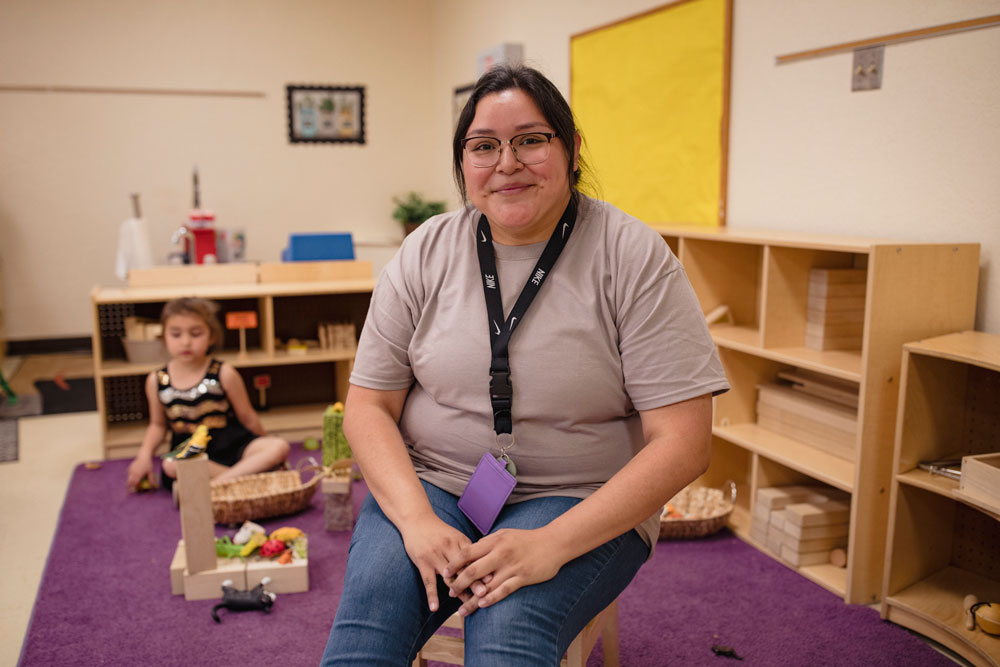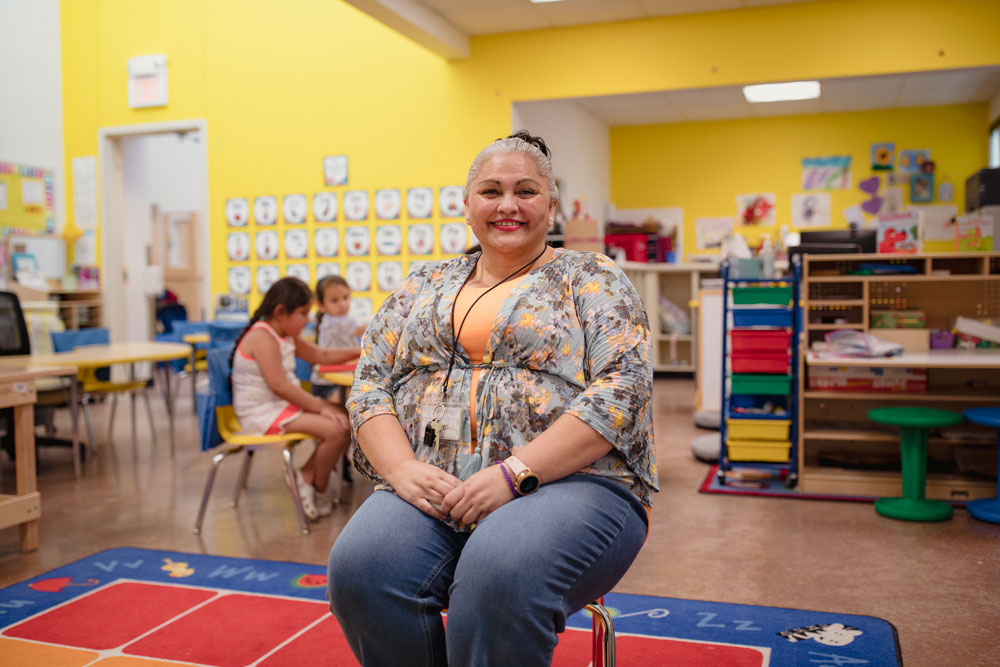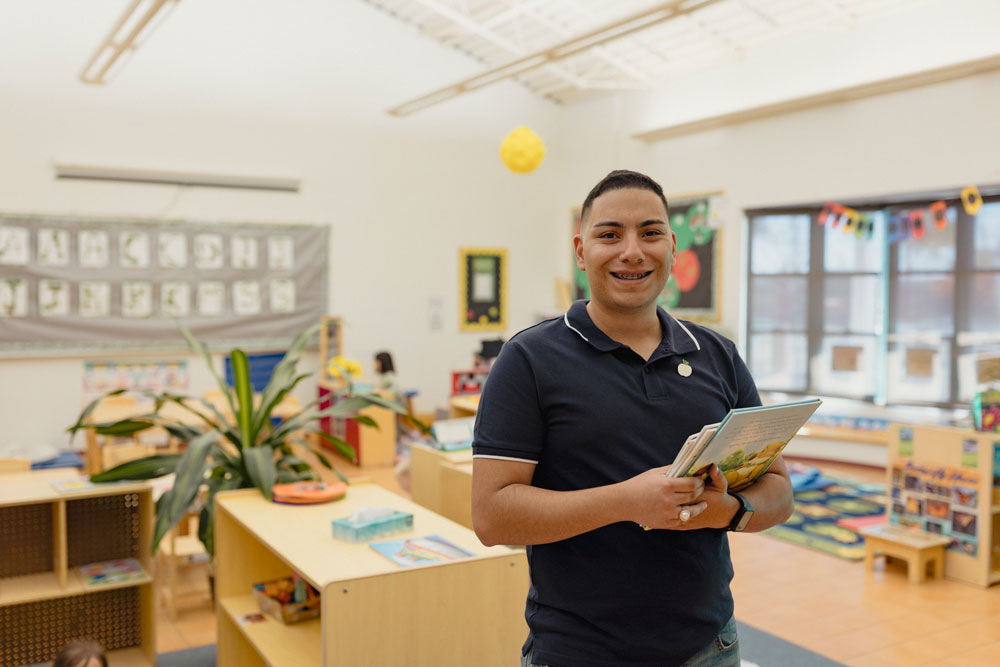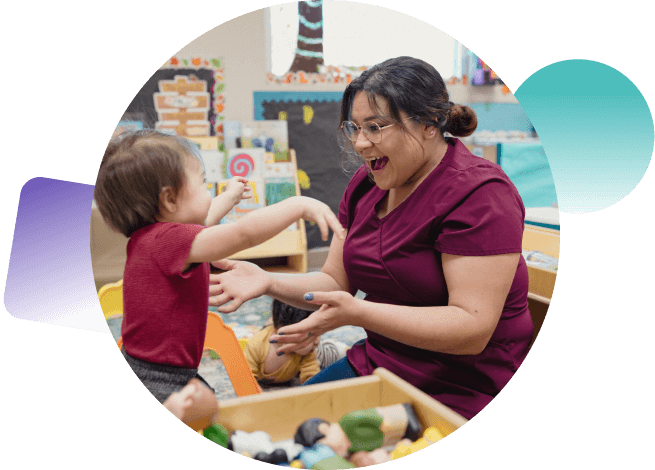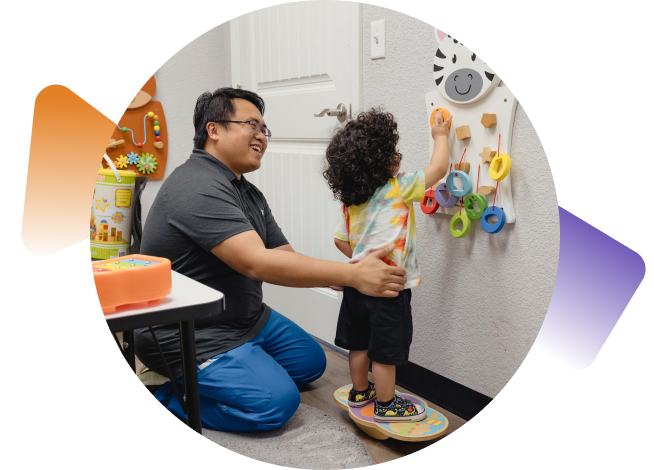What Is PreK?
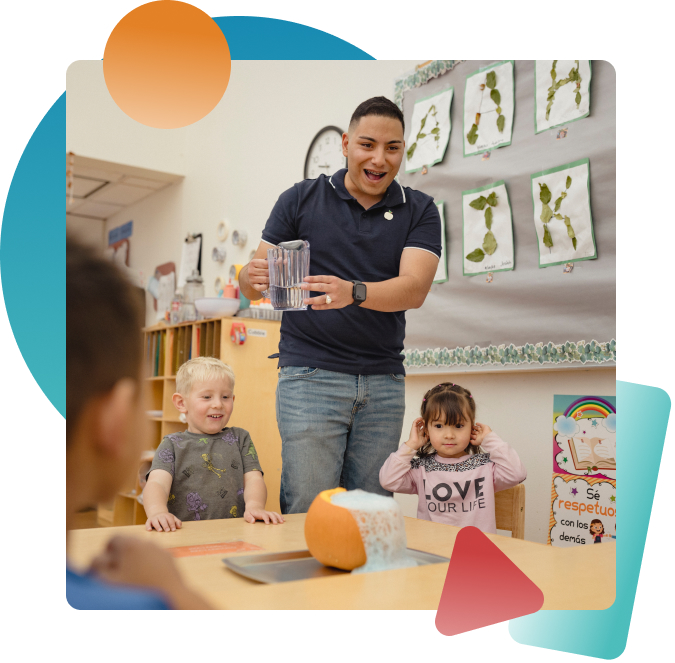
PreK is a program managed by the state of New Mexico that helps prepare 3- and 4-year-old children to learn and succeed in kindergarten and beyond. As a PreK educator, you’ll most likely work in a child care center or public school classroom. PreK educators and educator assistants work directly with children during the school day to plan and teach lessons, provide high-quality learning activities, and help children develop the social and emotional skills they’ll need for elementary school. PreK programs also need administrative professionals like PreK coordinators and program directors, as well as external support roles, such as PreK specialists and coaches/consultants.


Featured Professional: Tara
“I love that I get to work every day with children who are just going to change the world one day.”
A day at work for Tara Hughes is all about making connections. She helps the children in her PreK classroom make connections between ideas and experiences, and also between each other.
Read Tara’s Story

What Is Head Start?
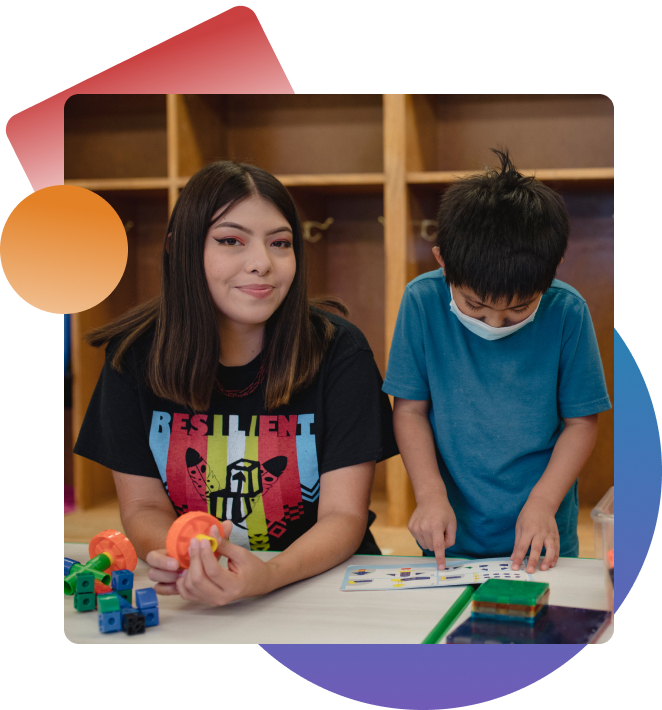

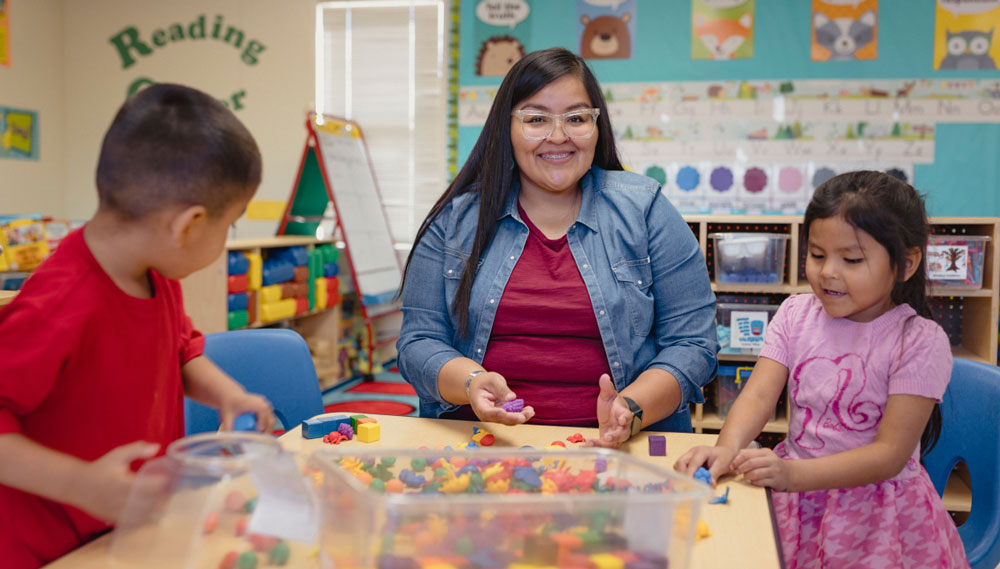
Featured Professional: Arlissa
“I want to make that difference, I want to be a part of that difference, and it all starts with the little ones.”
Arlissa Francisco’s journey into early childhood started as a volunteer, then as a part-time janitor, then as an educational assistant, and now, as a PreK lead teacher at To’Hajiilee Community School.
Read Arlissa’s Story

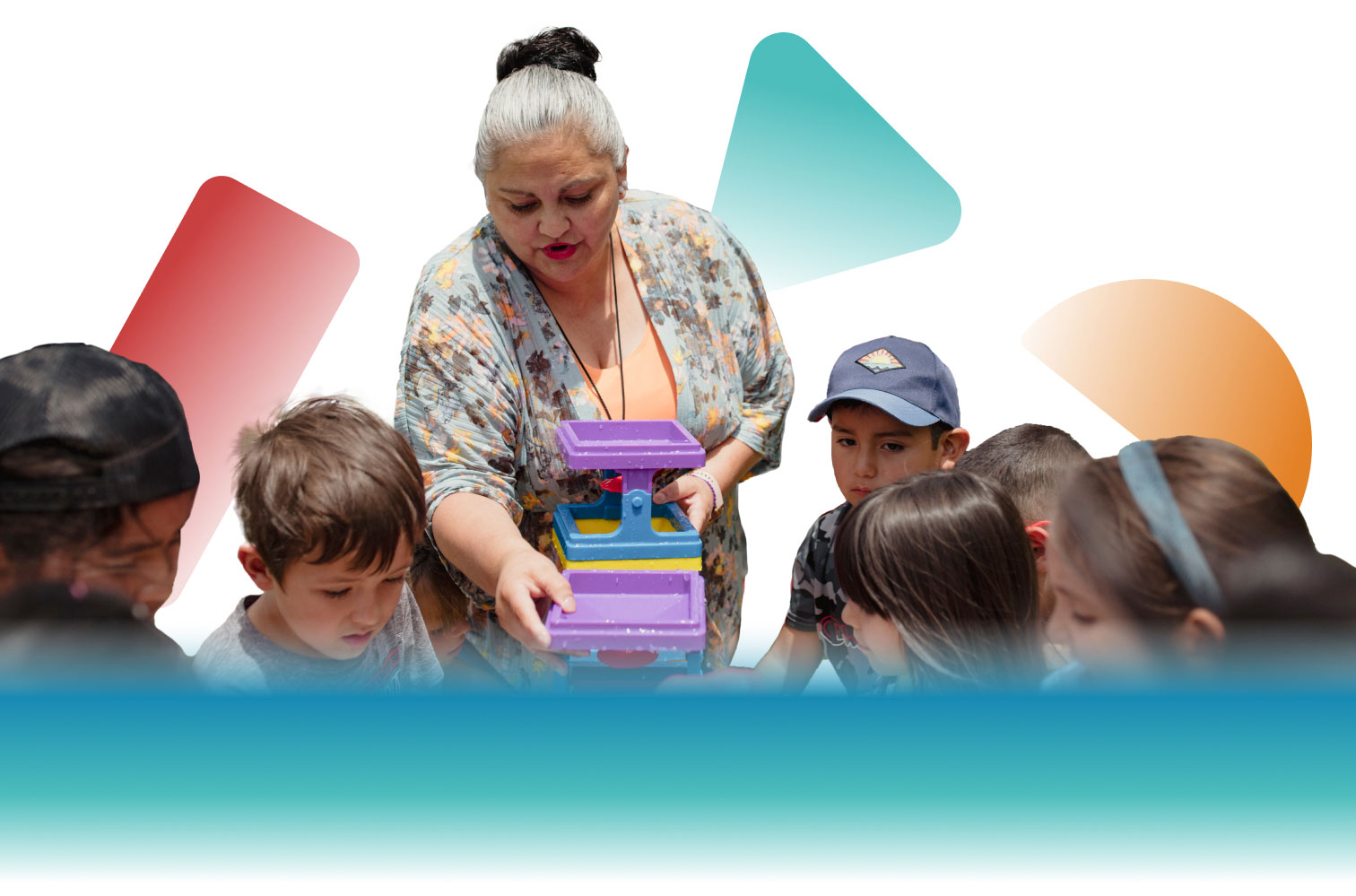
How Do I Know If PreK or Head Start Is Right For Me?
If you love working directly with children to help them learn and grow, then PreK or Head Start might be just the place for you. However, there are a few things to keep in mind as you consider this career.
Career Stories
Discover stories of real New Mexico professionals in PreK and Head Start.
